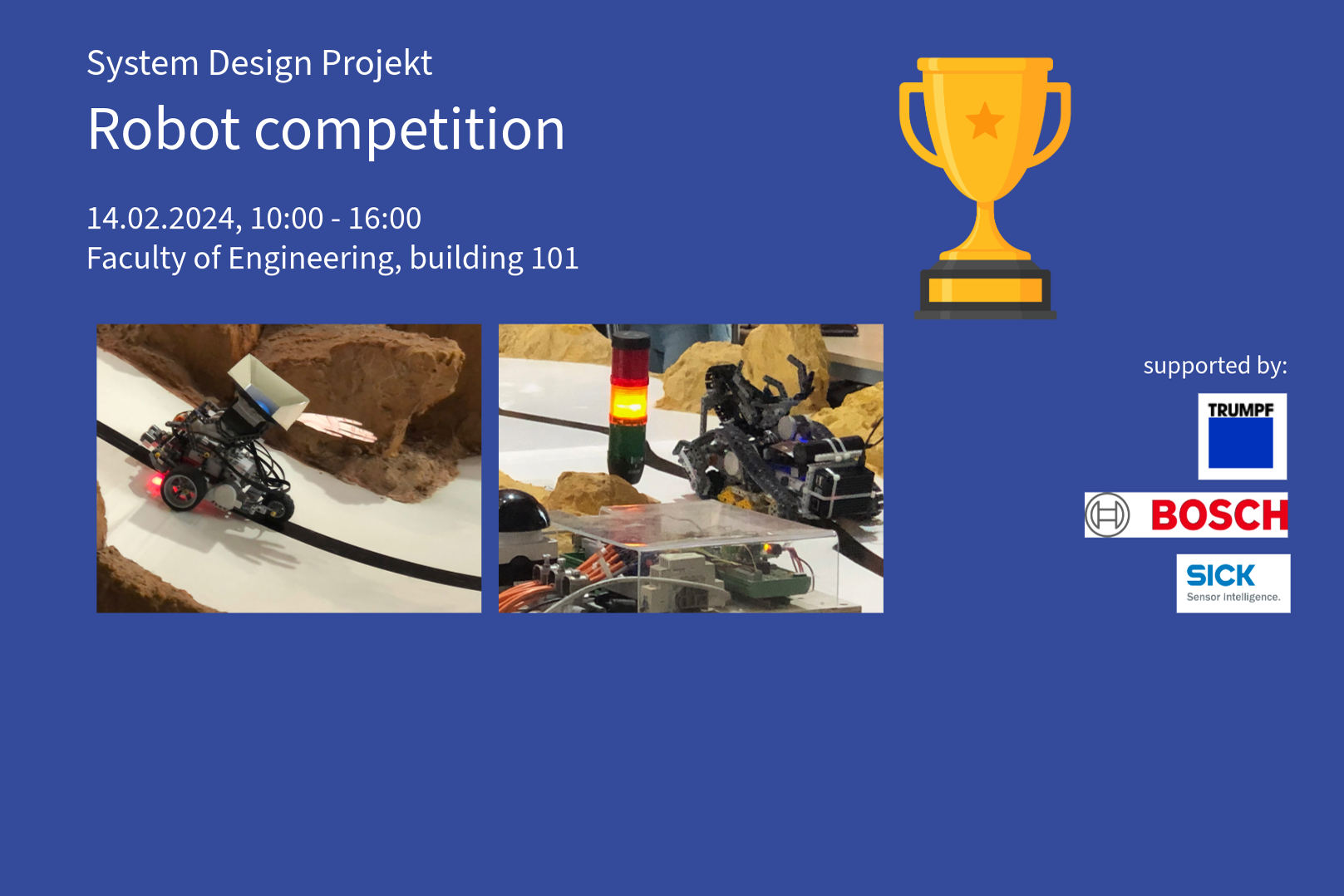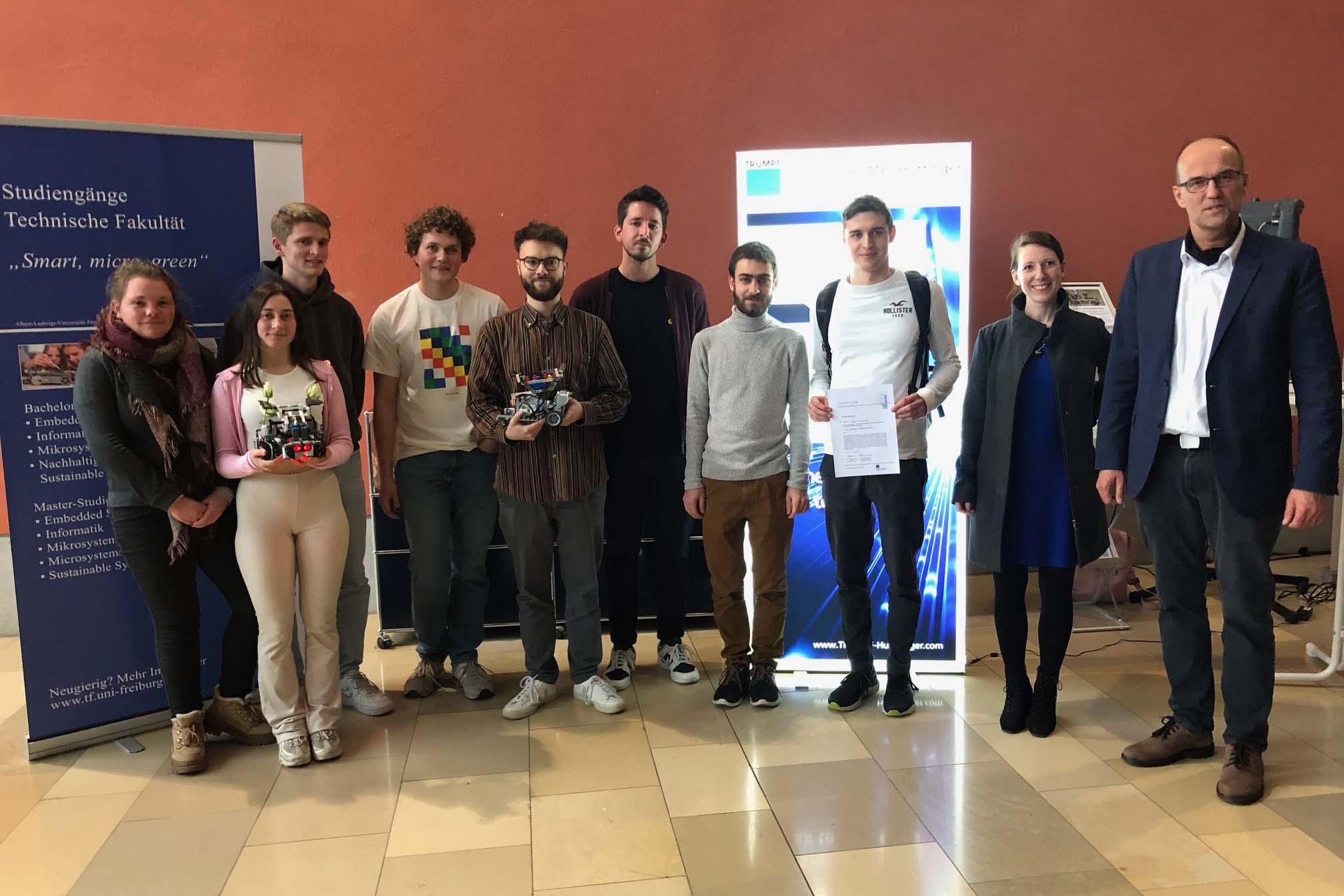Chair for Power Electronics
Prof. Dr. Dr. Oliver AmbacherGips-Schüle-Chair for Power Electronics Oliver Ambacher researches new materials for efficient power electronic systems |
|
News
 The robots have captured our heartsRobot competition on Valentine's Day |  System Design Projekt 2024: Meet the robots!Who will be the fastest robot? Who will be honoured for the best design? And who will receive the prize for innovation? |  Well done students!In the System Design Project, our students inspire with great robots |
More news
|
|
Vision: Halving energy losses in communication and energy conversion systems
In order to achieve the necessary progress in power electronics in Germany, the existing physical limits of silicon electronics are being overcome by developing devices from new semiconductor structures.
|
|
|
|
Vita |
|
Personal key figures |
|
|||||||||||||||
|
|
Oliver Ambacher received his diploma and doctorate in natural sciences with honors from the Ludwig-Maximilians-University of Munich and the Technical University of Munich in 1989 and 1993, respectively. In 1993, he obtained a position as a research associate at the Walter Schottky Institute of the Technical University of Munich, where he worked on the growth of gallium nitride and its alloys using molecular beam epitaxy and chemical vapor deposition. In 1995, he focused his group's research on the processing of GaN-based electronic and optical components. He was instrumental in the implementation of the first UV detectors, surface acoustic wave components, microwave amplifiers and sensors, and in the study of polarization-induced effects in GaN-based hetero- and quantum structures. In 1998/99, he received the Alexander von Humboldt Foundation Feodor Lynen Fellowship at Cornell University (USA) to further his work in the field of AlGaN/GaN transistors for high frequency power amplifiers. After his habilitation in experimental physics in 2000 and his promotion to senior assistant in 2001, he was appointed professor of nanotechnology at Ilmenau University of Technology one year later. In 2002 he was appointed director of the Institute for Solid State Electronics and two years later director of the Center for Micro- and Nanotechnologies. . From 2007 to 2021, he was director of the Fraunhofer Institute for Applied Solid State Physics. Since October 2007, Oliver Ambacher has been a professor at the Albert-Ludwigs-Universität Freiburg and has been working at the Institute for Sustainable Technical Systems (INATECH) since 2017.
In 2015, he received the Karl Heinz Beckurts Prize for his contributions to the development of highly efficient GaN-based power amplifiers for the latest generation of cellular base stations. In 2021, he was awarded the Rudolph Jaeckel Prize for the development of energy-efficient power electronic devices. In 2022, he received the Lester Eastman Award from the IEEE Electron Device Society for his outstanding achievements in the development of high-performance semiconductor devices.
|
|

